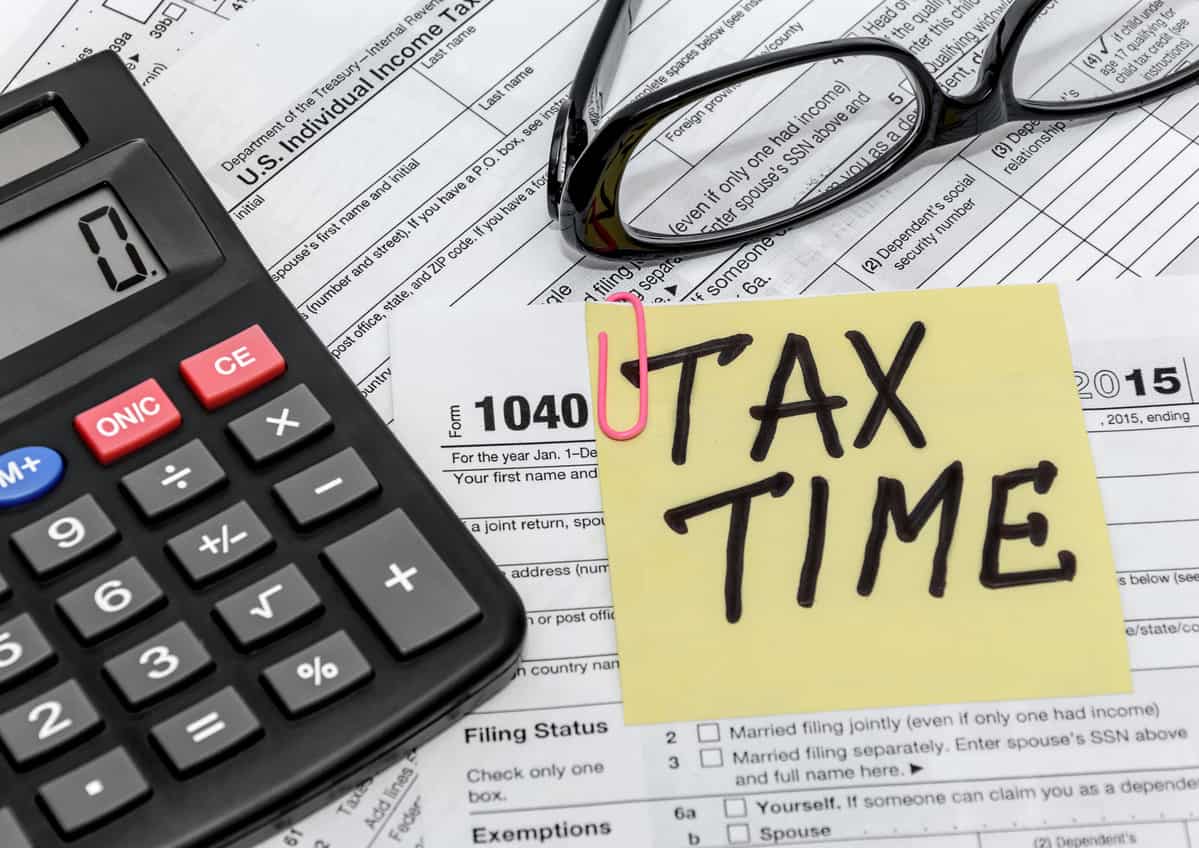No one will forget the winter and spring of 2020 when COVID-19 entered the world and essentially changed everything.
Finances and taxes are no exception to this change. The United States federal government designed and passed a federal stimulus package to help alleviate the burdens created.
Keep reading to learn what you need to know about the CARES Act and how this relief bill affects the 2020 tax season.
What is the Federal Stimulus Package?
The federal stimulus package passed on March 27, 2020, is also known as CARES Act. CARES stands for Coronavirus Aid, Relief, and Economic Security Act. The CARES Act is a $2 trillion aid package aimed to help families and businesses in a financial crisis because of COVID-19.
Many refer to the CARES Act as the COVID-19 relief bill as well.
Even the best savers may not have budgeted well enough to prepare for what is happening. It is even more important in times like these to save money.
The tax relief act has multiple parts to it. In particular, U.S. taxpayers will receive an advanced tax rebate. Everyone who has or will file for taxes is eligible for a hefty stimulus check of up to $1,200 for individuals, $2,400 for joint taxpayers, and $500 for each qualifying child.
The government will determine the amount of money you receive based on your income from your 2019 or 2018 tax filings, whichever they have on hand now. So if you have not yet filed your 2019 taxes and your tax status is different than 2018, file now.
Also, the government will then be able to put your stimulus check directly into your bank account via direct deposit.
The federal government has also provided relief to taxpayers by extending the federal tax deadline. This, in turn, has led states to extend their state income tax deadline. )
What was the Tax Deadline and What is the Tax Deadline Now?
The Trump stimulus package moved the federal income tax deadline back from April 15 to July 15. Here is a breakdown of all the tax deadlines for 2020 thus far.
- January 15, 2020: You should have paid your estimated fourth quarter taxes for the 2019 tax year.
- January 31, 2020: Employers should mail the W-2 forms to any employees. Businesses also needed to provide 1099s by this date.
- February 18, 2020: Financial institutions need to have mailed out their Form 1099-B, Form 1099-S, and Form 1099 MISC.
- February 28, 2020: Businesses need to have forms 1099 and 1096 mailed to the IRS.
- March 16, 2020: Corporations need to have their corporate tax returns file (Forms 1120, 1120-A, and 1120-S) for 2019 or make their six-month extension request (Form 1065) or request the automatic five-month extension (Form 7004)
- April 15, 2020: Pay your first quarter estimated tax payments for the 2020 tax year. Deadline for first quarter estimated tax payments for the 2020 tax year
- April 15, 2020: File a gift tax return.
- April 15, 2020: File your estate income tax or trust income tax returns (Form 1041) or make the five-month extension request (Form 7004)
- June 1, 2020: Financial institutions need to send out Form 5498
- June 15, 2020: You need to pay your second-quarter tax payments for the 2020 tax year.
- June 15, 2020: U.S. citizens abroad must file individual tax returns or Form 4868 for a 4-month extension.
- July 15, 2020: File your individual tax returns for 2019 or request an extension for six months to file and pay your taxes.
- Sept. 15, 2020: Pay your third-quarter estimated taxes for 2020.
- Sept. 15, 2020: File corporate tax returns for 2019 if you requested an extension.
- Oct. 1, 2020: Establish a SIMPLE-IRA if you are self-employed.
- Oct. 15, 2020: File your individual tax returns if you filed for an extension.
- Oct. 15, 2020: Fund your SEP-IRA or solo 401(k) for 2019 if you asked for an extension.
All of the new deadlines apply to federal income taxes and not state income taxes.
Most states have also extended their state income tax filing deadline, however. Some have unique deadlines. For example, Hawaii moved theirs to July 20, Idaho June 15, Iowa July 31, Mississippi May 15, and Virginia May 1 with a payment deadline of June 1.
All other states, except those who have no state income tax, of course, have moved their deadline to July 15.
Why was the Income Tax Deadline Extended?
COVID-19 has thrown the financial community out of whack. Many states have put a shelter-in-order in place, which means individuals who do not have essential jobs are now at home without an income.
The federal government delayed the tax deadline to give taxpayers time to get their taxes together. It also gives the government time to send out stimulus checks. The federal government will be using the IRS to send out checks, so agents will be taxed with the extra burden of processing stimulus checks as well as processing taxes.
Taxpayers can delay filing and paying their taxes now until mid-July rather than having to deal with the financial burden in April.
There’s also the thought that stimulus checks could help individuals pay their 2019 income taxes.
What are the Repercussions of Extending the Tax Deadline?
On a consumer level, there are no probable repercussions to extending the tax deadline. If you need more time than July 15 to pay your taxes, you can file for an extension just like you could if you had to pay on April 15. You essentially may have until October to finish paying your taxes if you need that time.
There are a few other financial repercussions because of the CARES Act.
401(k) Contributions
Your contributions to a traditional 401 (k) will end up lowering your total taxable income for the year. You will only have to pay taxes on the remainder of your salary if you contribute the maximum amount in your 401(k).
Also, if your employer matches what you contribute, you could have more money if you contribute enough.
IRAs
You now have until July 15, the tax deadline, to add to your IRA, be it a Roth or traditional. If you’re under the age of 50, you can contribute up to $6,000 to your IRA. If you’re over 50, you can contribute up to $7,000.
Health Savings Accounts
A health savings account is a medical account for people with high-deductible health plans. An HSA gives these individuals a way to save taxes and thus pay for their higher out-of-pocket costs.
If you have an HSA, you have until July 15 and not April 15 to contribute to it for the 2019 tax year. If you’re an individual, you can contribute up to $3,500 in your HSA. If you’re a family, you can contribute up to $7,000 for the 2019 tax year.
The limit will go up in 2020 to $3,550 for individuals and $7,100 for families.
What Happens if You Miss the Tax Deadline?
On a regular year, if you do not pay your taxes by April 15, you will receive a financial penalty. Even if you file an extension, the IRS will usually penalize you. Usually, you must pay a penalty of 0.5% of the additional tax owed amount for each month the owed tax is unpaid, up to a maximum of 25%.
The IRS will typically charge you a monthly bill of the taxes you haven’t paid. The IRS may also tack interest and penalties on your bill due on April 15.
However, under normal circumstances, if you file an extension and pay most of your taxes, at least 90 percent, then the IRS will waive fees and penalties.
This year, the IRS is making an exception. Individuals and corporations may now defer their tax bill of up to $1 million for individuals and $10 million for corporations until July 15 without any penalties or interest.
Can You File Your Taxes After the Deadline?
You absolutely can file your taxes after the deadline. However, you will need to apply for an extension. You will need a plausible reason for an extension.
Many people are under financial strain right now because of this new reality.
How do I Extend My Tax Deadline?
You do not need to do anything to extend your tax deadline to July 15. The federal government did that for everyone.
The U.S. government issued a 90-day tax payment deferral so you do not have to apply for an extension if you can pay your taxes by July 15.
If you’ve already filed your taxes, you will still receive any tax refund you have coming to you in a timely fashion. The extension does not mean you will receive your refund check back until July.
If you cannot file your taxes by July 15, then you can file an extension for an additional 90-day tax deferral. An extension means you would have until October 15 to file your income tax return. You would still need to pay your taxes by July 15, even if you do not file until October 15.
Even with the federal stimulus package and tax deferrals, you still may find yourself in financial stress. COVID-19 has wreaked havoc on the economy. Find a financial resource center near you to help you figure out how to pay your bills and stay in your home.
Take a Breath
The pandemic has put stress on everyone financially, physically, and mentally. The federal stimulus package has served to alleviate the financial and mental stress of this current time.



